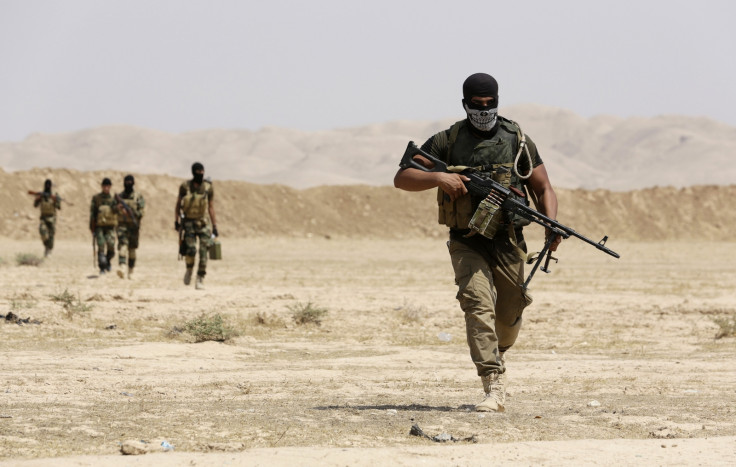Iraq Crisis: Kurdish Peshmerga Commander Claims Amerli Recaptured From 'Drugged Up' Jihadis

A Kurdish peshmerga commander has claimed that his forces retook the besieged town of Amerli in northern Iraq from Isis (now known as the Islamic State) militants who were "high on drugs".
Last week, Kurdish peshmerga Iraqi forces and Shia militias recaptured the Turkmen town of Amerli after it fell into the hands of IS for two months.
"They are high on drugs," Private Qassim Hussein Ali told The Times. "If you stand and fight them for ten minutes they will run away or die."
The claim is unusual because the radical form of Islam that the terror group enforces in its self-delcared Islamic 'Caliphate', across northeastern Syria and northern Iraq, outlaws cigarettes, drugs and alcohol.
The group have even posted online footage of its militants chopping down fields of marijuana plants and dousing them with flammable liquid and setting the plants alight.
Approximately 15,000 Iraqis, mainly Shia Turkmen, were trapped in the town of Amerli until renewed US air strikes hit IS positions, allowing Iraqi forces to take control.
As the coalition forces moved in on the town from two fronts, US and Iraqi aircraft supplied overnight air cover.
However, IS have left roadside bombs and booby traps around the town, leaving it a dangerous area for citizens and military forces to stay.
IS "threatening to slaughter us"
"Security forces and militia fighters are inside Amerli now after breaking the siege and that will definitely relieve the suffering of residents," Mayor of Amerli, Adel al-Bayati, told Reuters.
Amir Ismael, a resident of Amerli, told Reuters: "I can see the tanks of the Iraqi army patrolling Amerli's street now. I'm very happy we got rid of the Islamic State terrorists who were threatening to slaughter us."
Earlier this week, the UN Human Rights Council debated whether an emergency mission should be sent to Iraq to investigate potential war crimes and crimes against humanity.
The UN's Deputy Human Rights Commissioner, Flavia Pansieri, said IS had committed targeted killings, forced conversions, sexual abuse and slavery in the country.
Pansieri said Christian, Yazidi, Turkmen, Shabak, Kaka'i, Sabeans and Shia communities had "all been targeted through particularly brutal persecution" in "what may amount to ethnic and religious cleansing".
"Hundreds of thousands of civilians from these communities have fled to remote and desolate locations where unconfirmed reports indicate that scores of children, elderly people and people with disabilities have been dying as a result of exhaustion and deprivation."
© Copyright IBTimes 2024. All rights reserved.






